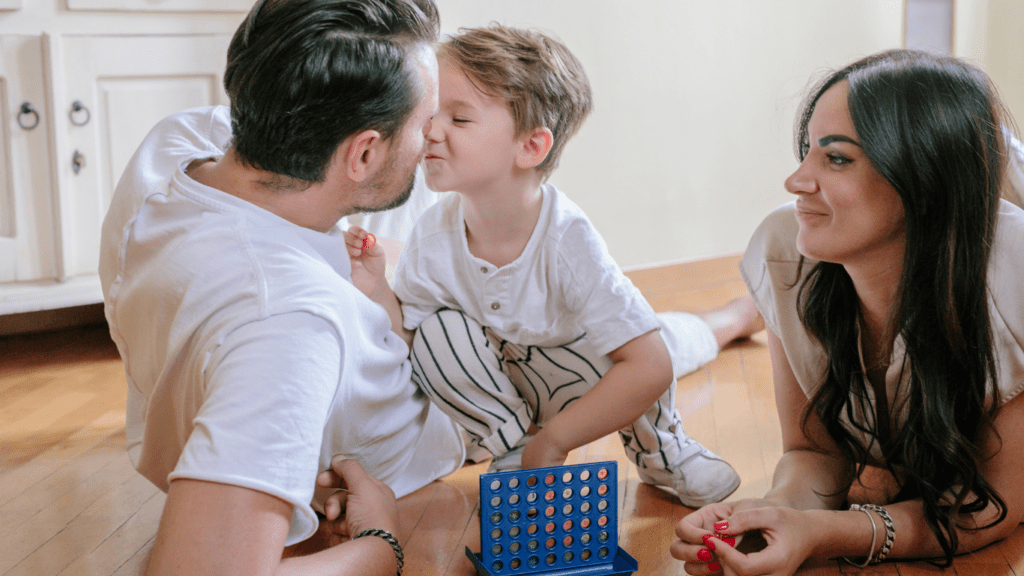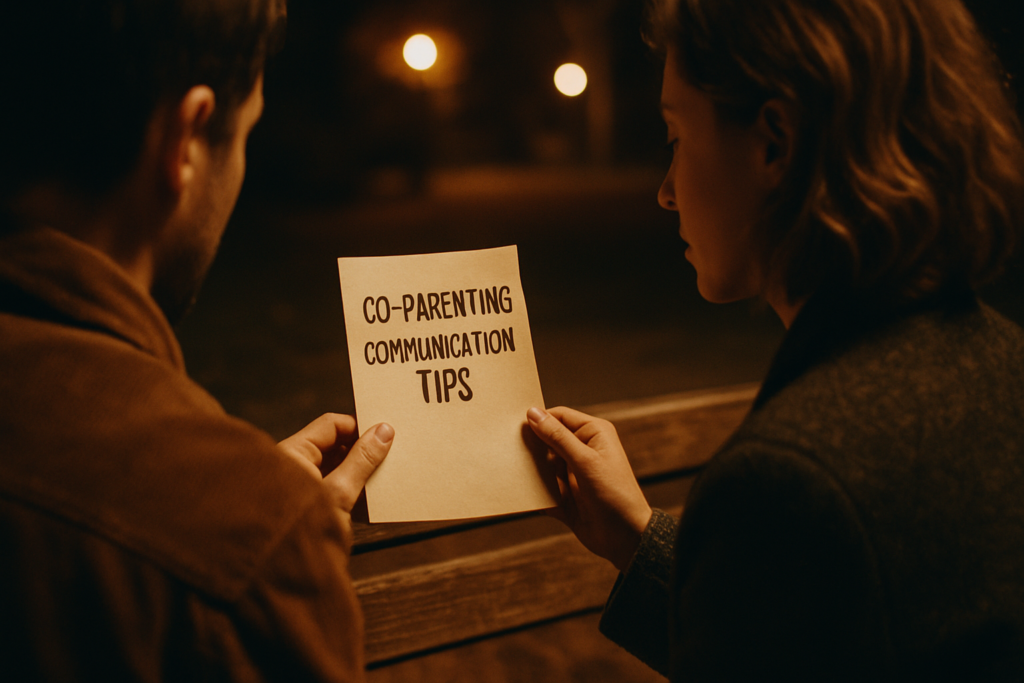Navigating the complexities of co-parenting with a new partner can be both challenging and rewarding. As a parent, I understand the importance of fostering healthy relationships while juggling the dynamics of co-parenting.
In this article, I’ll share valuable tips on how to introduce new partners into your co-parenting journey seamlessly. Balancing the needs of your children with the introduction of a new partner requires careful consideration and open communication.
I’ll delve into practical advice on how to maintain a harmonious co-parenting environment while welcoming a new adult figure into your children’s lives. Join me as I explore strategies to navigate this transition with grace and understanding.
Whether you’re embarking on a new relationship or looking for ways to enhance your co-parenting dynamics, this article will provide insights and guidance to help you navigate the challenges and joys of introducing new partners into your co-parenting journey.
Understanding the Dynamics of Co-Parenting in New Relationships
Navigating co-parenting in new relationships involves a delicate balance of emotions, responsibilities, and communication. It’s essential to acknowledge that every family dynamic is unique, and introducing a new partner adds another layer of complexity to the co-parenting equation.
Understanding the dynamics of co-parenting in these situations is crucial for maintaining harmony and stability within the family unit. When integrating a new partner into your co-parenting relationships, it’s important to recognize that the needs and feelings of all individuals involved, including the children, must be considered.
Building trust, fostering open communication, and setting boundaries are key aspects of successfully navigating this transition. Remember, patience and empathy are valuable traits that can facilitate the adjustment process for everyone.
Establishing clear roles and responsibilities within the co-parenting structure helps create a sense of stability and predictability for both the adults and the children. By defining expectations and boundaries early on, conflicts can be minimized, and a cooperative co-parenting environment can be maintained.
Flexibility and mutual respect are also fundamental components of effective co-parenting in new relationships. Maintaining a child-centric approach throughout the co-parenting journey is paramount. Prioritizing the well-being and best interests of the children above all else ensures that decisions are made with their needs in mind.
By creating a united front with your co-parent and new partner, you can cultivate a supportive and nurturing environment that promotes healthy growth and development for the children. Understanding the dynamics of co-parenting in new relationships requires patience, empathy, and a commitment to effective communication.
By prioritizing the needs of all family members, establishing clear boundaries, and maintaining a child-centric focus, you can navigate the challenges and uncertainties of blending families with grace and compassion.
Establishing Open Communication Channels
When it comes to co-parenting in new relationships, establishing open communication channels is key. It sets the foundation for transparency and trust among all parties involved, creating a supportive environment for the children.
Importance of Transparent Communication
In co-parenting with new partners, transparent communication is crucial. It fosters trust and ensures that everyone is on the same page regarding decisions that impact the family. By openly discussing thoughts, concerns, and expectations, misunderstandings can be minimized, leading to smoother transitions and better relationships.
Setting Joint Expectations
Setting joint expectations is essential in co-parenting dynamics. By aligning on goals, parenting styles, and boundaries early on, all individuals can work towards a common vision for the family. This clarity helps in managing roles and responsibilities effectively, reducing conflicts, and promoting unity in parenting decisions.
Building Trust and Respect Among Co-Parents
In co-parenting dynamics, establishing trust and respect among all parties involved is fundamental to fostering a harmonious environment for children and adults alike. Clear communication and mutual respect lay the foundation for successful co-parenting relationships, ensuring that everyone’s needs and feelings are considered.
- Prioritize Honest and Open Communication: Communication is key in any relationship, and in co-parenting, it is paramount. Open dialogue allows co-parents to express concerns, discuss expectations, and collaboratively make decisions that benefit the children. By being transparent and proactive in communication, trust is built, and misunderstandings are minimized.
- Respect Each Other’s Roles and Boundaries: Recognizing and respecting the roles and boundaries of all individuals involved in co-parenting is crucial. Each party brings unique perspectives and strengths to the dynamic, and acknowledging these differences fosters a sense of respect and understanding. By valuing everyone’s contributions, a collaborative and supportive co-parenting environment can thrive.
- Consistency and Reliability: Consistency in actions and reliability in fulfilling responsibilities are pillars of trust-building in co-parenting. When co-parents demonstrate consistency in their behavior and uphold their commitments, trust is reinforced. Reliability ensures that children feel secure and valued, contributing to a stable and nurturing family environment.
- Show Empathy and Understanding: Empathy plays a significant role in building trust among co-parents. Understanding and acknowledging each other’s perspectives, emotions, and challenges cultivate empathy, creating a supportive atmosphere within the co-parenting dynamic. By showing empathy, co-parents can navigate conflicts constructively and strengthen their relationships.
- Celebrate Achievements Together
Recognizing and celebrating achievements, milestones, and positive moments within the co-parenting relationship reinforce mutual respect and appreciation. By acknowledging successes together, co-parents acknowledge each other’s efforts and commitment, fostering a sense of unity and shared accomplishment.
Building trust and respect among co-parents requires effort, empathy, and a shared commitment to prioritizing the well-being of the children. By upholding clear communication, respecting boundaries, demonstrating reliability, showing empathy, and celebrating successes together, co-parents can cultivate a strong foundation for a successful co-parenting relationship.
Navigating Boundaries with the Involvement of New Partners
Establishing clear boundaries when new partners are involved in co-parenting is essential for maintaining a harmonious family dynamic and prioritizing the well-being of the children. It’s crucial to set guidelines that respect everyone’s roles and responsibilities while promoting a supportive environment for all individuals involved.
- Defining Roles and Responsibilities: Identifying and defining the specific roles and responsibilities of each co-parent and new partner is key to avoiding confusion and conflicts. Clearly outlining who is responsible for what aspects of parenting helps streamline decision-making and ensures consistency in parenting approaches.
- Setting Communication Boundaries: Establishing communication boundaries is vital for fostering healthy relationships and minimizing misunderstandings. Clearly defining how and when information should be shared, as well as the preferred methods of communication, can contribute to a more collaborative and transparent co-parenting experience.
- Respecting Personal Space and Time: Acknowledging and respecting personal space and time boundaries is essential when new partners are involved in co-parenting. Understanding and accommodating each individual’s need for privacy and downtime can help prevent overstepping boundaries and contribute to a more respectful and considerate familial environment.
- Consistency in Disciplinary Approaches: Maintaining consistency in disciplinary approaches among co-parents and new partners is crucial for promoting a unified front in parenting decisions. Agreeing on disciplinary strategies, consequences, and rules helps prevent confusion for the children and fosters a sense of stability and security within the family unit.
- Flexibility with Boundaries: While setting clear boundaries is important, it’s also essential to remain flexible and open to adjustments as the family dynamic evolves. Being willing to revisit and reassess established boundaries based on changing circumstances or feedback from all parties involved can help adapt to new challenges and ensure the continued success of the co-parenting relationship.
Balancing the Needs of Children and New Relationships
Ensuring a smooth transition when blending families involves prioritizing the well-being of children while nurturing new relationships. It’s essential to strike a delicate balance between meeting the needs of the children and fostering connections with new partners.
By focusing on creating a supportive environment that considers the emotional and practical aspects for all individuals involved, successful co-parenting can be achieved.
Prioritizing Children’s Needs
When navigating new relationships in a co-parenting setting, the primary focus should always be on the children. By placing their needs at the forefront of decision-making, parents and new partners can create a stable and nurturing environment for the children to thrive.
Putting children first involves considering their emotional well-being, routines, and any adjustments required to accommodate the new dynamic.
Fostering Healthy Relationships
Building strong relationships with new partners while co-parenting is crucial for the overall harmony of the family unit. It’s important to establish open lines of communication, mutual respect, and shared goals to ensure that everyone is working towards the well-being of the children.
By fostering positive relationships based on trust and understanding, the family can navigate challenges together effectively.
Establishing Clear Boundaries
Setting boundaries is essential when integrating new partners into the co-parenting dynamic. Clearly defining roles, responsibilities, and expectations helps prevent misunderstandings and conflicts.
Establishing communication boundaries, respect for personal space, and consistency in disciplinary approaches create a structured and considerate environment for all members of the blended family.
Flexibility and Adaptability
While clear boundaries are important, it’s equally vital to remain flexible and open to adaptation as relationships evolve. Being willing to adjust boundaries based on changing circumstances and dynamics within the family allows for continued growth and success in co-parenting.
Flexibility helps families navigate challenges with resilience and a willingness to embrace new solutions. Balancing the needs of children and new relationships in a co-parenting scenario requires a focus on prioritizing children, fostering healthy relationships, setting clear boundaries, and maintaining flexibility.
By creating a child-centric environment, building strong connections with new partners, establishing boundaries, and remaining adaptable, families can navigate the complexities of blending households with empathy, patience, and effective communication.




